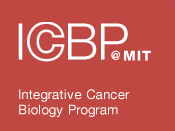| Title | Expanding applications of chemical genetics in signal transduction. |
| Publication Type | Journal Article |
| Year of Publication | 2012 |
| Authors | Carlson, SM, White, FM |
| Journal | Cell Cycle |
| Volume | 11 |
| Issue | 10 |
| Pagination | 1903-9 |
| Date Published | 2012 May 15 |
| ISSN | 1551-4005 |
| Keywords | Acetylation, HeLa Cells, Humans, Methylation, Mitogen-Activated Protein Kinase 1, Pharmacogenetics, Phosphorylation, Protein Engineering, Protein Processing, Post-Translational, Proteins, Proteomics, Signal Transduction, Substrate Specificity |
| Abstract | Chemical genetics represents an expanding collection of techniques applied to a variety of signaling processes. These techniques use a combination of chemical reporters and protein engineering to identify targets of a signaling enzyme in a global and non-directed manner without resorting to hypothesis-driven candidate approaches. In the last year, chemical genetics has been applied to a variety of kinases, revealing a much broader spectrum of substrates than had been appreciated. Here, we discuss recent developments in chemical genetics, including insights from our own proteomic screen for substrates of the kinase ERK2. These studies have revealed that many kinases have overlapping substrate specificity, and they often target several proteins in any particular downstream pathway. It remains to be determined whether this configuration exists to provide redundant control, or whether each target contributes a fraction of the total regulatory effect. From a general perspective, chemical genetics is applicable in principle to a broad range of posttranslational modifications (PTMs), most notably methylation and acetylation, although many challenges remain in implementing this approach. Recent developments in chemical reporters and protein engineering suggest that chemical genetics will soon be a powerful tool for mapping signal transduction through these and other PTMs. |
| DOI | 10.4161/cc.19956 |
| Alternate Journal | Cell Cycle |
| PubMed ID | 22544320 |
| PubMed Central ID | PMC3359120 |
| Grant List | 5P30CA014051 / CA / NCI NIH HHS / United States R01CA118705 / CA / NCI NIH HHS / United States R01DK42816 / DK / NIDDK NIH HHS / United States U54CA112967 / CA / NCI NIH HHS / United States |
